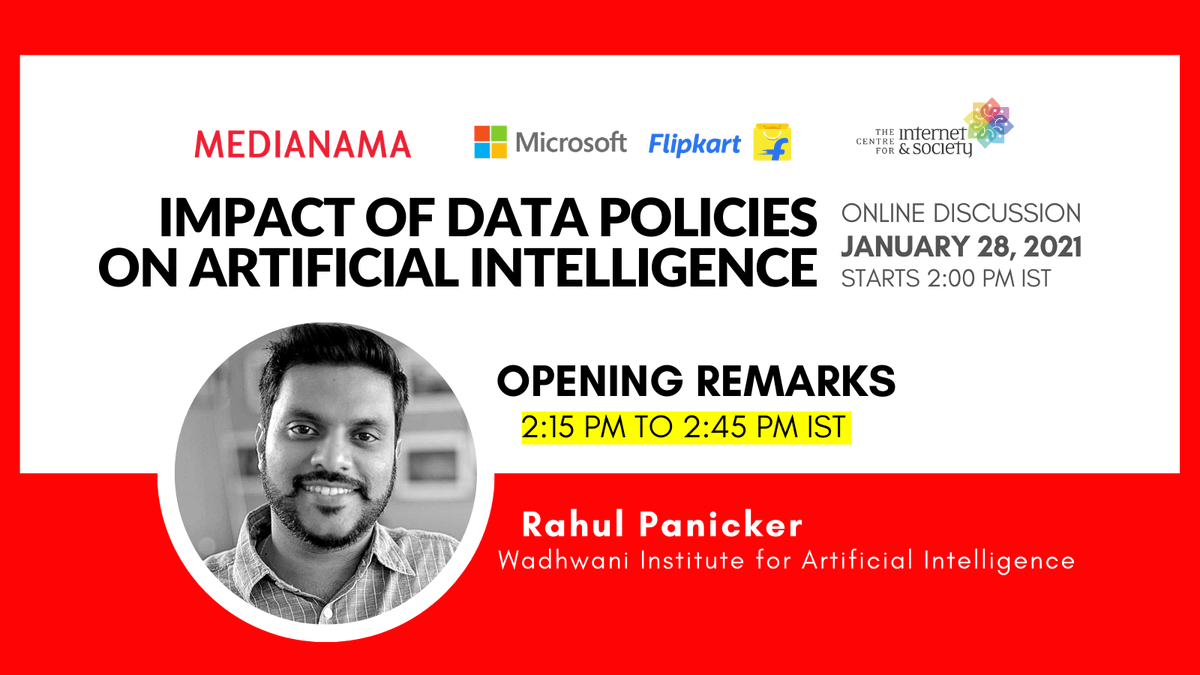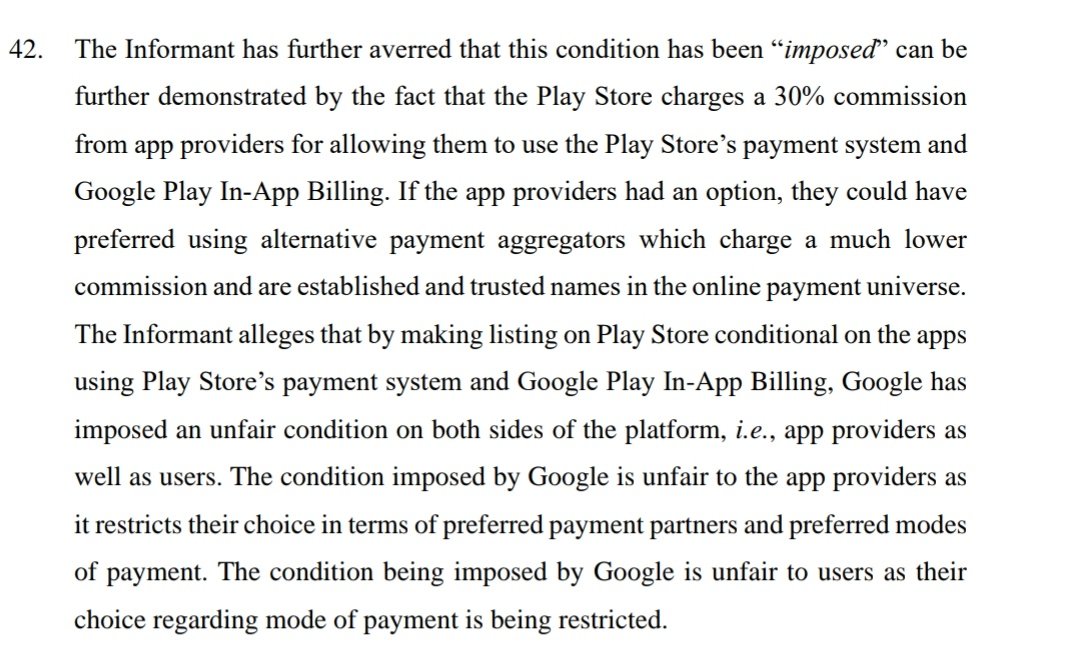
How E-Commerce Deliveries Evolved In 2020 pscp.tv/w/cvt6XDFXZ0tn…
We thought fashion would grow lower. But that wasn’t the case. It just got shifted from a lot of outdoor clothing to indoor clothing. - Amitesh Jha @Flipkart #Ecommercein2020
Last year can be divided in 3 phases: March-May when there were lots of lockdowns and that impacted people in getting outside food. We saw restaurants reduce to 30% of pre-COVID levels. - Mohit Sardana, @zomato #Ecommercein2020
As the unlock started we started getting restaurants online, they figured hoe to solve for their manpower issues. This is when we saw non-essential food consumption go up. - Mohit Sardana, @zomato pscp.tv/w/1MnxnlLqLLVGO
Number of new users is ahead of pre-COVID levels. Last year made outside food consumption at home has become common. Only dine-in restaurants shifted to takeaway as well. New restaurants are also opening up. - Mohit Sardana, @zomato #Ecommerce2020 #NAMA
The police on the ground, and sometimes we did not understand over what was allowed and what wasn’t during the lockdown which led to some harassment. What is essential is also very subjective. - Amitesh Jha, @Flipkart pscp.tv/w/1MnxnlLqLLVGO
We approached state Govts to figure out norms of working, passes, and was done in a way that was safe for everyone. Some states also helped us in figuring out the kind of safety norms we need at our warehouses. - Amitesh Jha, @Flipkart
#Ecommercein2020 #NAMA
#Ecommercein2020 #NAMA
We had tech to figure out the pinnaces, addresses fall ion which area (red, yellow, green), and what things could be sold in that area. It was very close coordination to ensure that we was fair for everyone. - Amitesh Jha, @Flipkart #Ecommercein2020 #NAMA
We have a strong seller base that sells from its own warehouse. So if I have an item in Bangalore, that item will also be there in Delhi. - Amitesh Jha, @Flipkart #Ecommercein2020 #NAMA pscp.tv/w/1MnxnlLqLLVGO
There would’ve been guidelines for various state officials to create WhatsApp groups to coordinate. All these groups across various states were created in 2-3 days. The govt was savvy in getting important stakeholders together. - Mohit Sardana, @zomato #Ecommerce #NAMA
It takes time for information to percolate in government machinery. Things were a bit different in East Delhi compared to North Delhi for instance. That happened because decisions were being made on the fly. But it was fixed in a few days. - Mohit Sardana, @zomato
We tapped on a lot of partners by making sure our systems are integrated so that we have the best ability after looking at that information sharing. We used automation on assurance that people are wearing masks, using sanitisers. - Mohit Sardana, @zomato #Ecommercein2020
We used CCTV cameras at our hubs to make sure that people were taking precautions. Cameras were also used to ascertain the distance between people - Mohit Sardana, @zomato #Ecommercein2020 pscp.tv/w/1MnxnlLqLLVGO
Both our employees and our delivery personnel went though a lot in the early days of the lockdown. There was a lot of uncertainty. I don’t think it was about larger companies vs smaller companies. But I’d say being a larger company had an advantage. - Mohit Sardana, @zomato
We felt that the research we had done didn’t come to much because of the way the lockdown was imposed in India. We realised that being nimble and figuring out our solution helped us more compared to learning from other countries. - Mohit Sardana, @zomato pscp.tv/w/1MnxnlLqLLVGO
How consumer behaviour changed: First thing everyone wanted was to get them their orders. That was our first challenge. We had to work hard to get out about 30 lakh essential items out for delivery. - Amitesh Jha, @Flipkart #Ecommercein2020
Till June, July, consumers just wanted their things to be delivered to them in a safe manner. Before that, they just wanted their essentials delivered quickly and safely. - Amitesh Jha, @Flipkart #NAMA #Ecommercein2020 pscp.tv/w/1MnxnlLqLLVGO
We used mask selfies to see whether riders were wearing masks. On the app, various stakeholders could give feedback about each other, kind of like a self-policing system - Mohit Sardana, @zomato #Ecommercein2020 #NAMA
Initially our volumes dipped to 20-25% of pre-covid levels, so the migration of people was less of an issue for us. The bigger issue for us was the shuttering down of restaurants. - Mohit Sardana, @zomato #Ecommercein2020 pscp.tv/w/1MnxnlLqLLVGO
Our biggest migrant workforce is intra-state. In cities, that wasn’t much of a problem, but outside of cities at our sortation centres, we did have some issues. So it’s important that reverse migration happens - Amitesh Jha, @Flipkart #Ecommercein2020 #NAMA
We also employed more than 50,000 Kirana stores during the Big Billion Day sales to ensure last mile delivery. - Amitesh Jha, @Flipkart #Ecommercein2020 #NAMA
Post lockdown, we stopped cash on delivery for sometime. But the requirement of cash came back in May or June, but it has not gone up. There are more people now ordering in prepaid. - Amitesh Jha, @Flipkart pscp.tv/w/1MnxnlLqLLVGO
The postpaid payment mode has changed. People choose cash on delivery option, but they pay via digital modes. - Amitesh Jha, @Flipkart #Ecommercein2020 #NAMA
As we get into this phase of growth, with new consumers coming in tier 2 and 3 towns, cash continues to be important. - Mohit Sardana, @zomato #Ecommercein2020 pscp.tv/w/1MnxnlLqLLVGO
Prior to COVID, it was a lot about discounting. But, now, consumers saw this as an essential service, and consider it as a service worth paying for. We have also seen our average order volumes go up. - Mohit Sardana, @zomato #Ecommercein2020 pscp.tv/w/1MnxnlLqLLVGO
We are going ahead with the assumption that this COVID trend is here to stay and that is how we are strategising. For instance, now people are celebrating at home, and we are building solutions to facilitate that. - Mohit Sardana, @zomato #Ecommercein2020 #NAMA
Grocery delivery I think will have a fundamental change in its trajectory. The overall sophistication in the supply chain will also increase. - Amitesh Jha, @Flipkart pscp.tv/w/1MnxnlLqLLVGO
The entire cloud kitchen space will be interesting to look at. Having a low cost real estate food delivery model all be helpful going forward. - Mohit Sardana, @zomato #Ecommercein2020 #NAMA
And that’s a wrap! We’d like to thank Flipkart for their support for this discussion. We’d also like to thank our community partners for this discussion: Stanford Alumni India Chapter (North & East), and the Headstart Network, which was the Startup Ecosystem Partner.
You can watch a recording of the discussion on the following link:
@threadreaderapp Please unroll
• • •
Missing some Tweet in this thread? You can try to
force a refresh










